June 01, 2022
Differentiated service delivery (DSD) is a person-centered approach to simplifying HIV care while maintaining high quality services delivery. The World Health Organization (WHO) officially endorsed the approach in 2015, and DSD has since become a significant strategy in achieving the Joint United Nations Programme on HIV/AIDS (UNAIDS) 95-95-95 targets by 2030.
The University of Maryland, Baltimore (UMB) and Ciheb-Kenya recently released a report, “Evaluation of Differentiated Service Delivery Model,” which summarizes results, as related to DSD, from its PACT Endeleza and PACT Timiza programs in Kenya. The evaluation focused on the effect of multi-month dispensing (MMD) (three months or more) compared to conventional care.
PACT Endeleza operated in Nairobi, Kenya’s capital, and PACT Timiza operated in Kisii and Migori counties, which lie farther west of Nairobi. In addition to working to achieve the UNAIDS’ 95-95-95 targets, the two programs aimed to reduce HIV incidence and AIDS-related mortality by providing timely HIV services, including testing and antiretroviral therapy (ART). As of September 2021, when both programs ended, more than 124,000 people were on treatment.
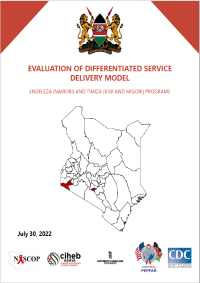
2022 DSD Report Cover
Key Takeaways
Ciheb’s recently released report found that individuals return to the clinic by six months irrespective of the type of care provided (MMD or conventional care). Similarly, loss to follow up (LTFU), an event in which clients discontinue care, and viral rebound occurred in low levels across the client population, whether clients were enrolled in MMD or on the conventional care. Notably, though, individuals on DSD had a lower likelihood of experiencing viral rebound compared to those on the standard of care. This finding is encouraging, as MMD is a key implementation strategy as part of the DSD framework.
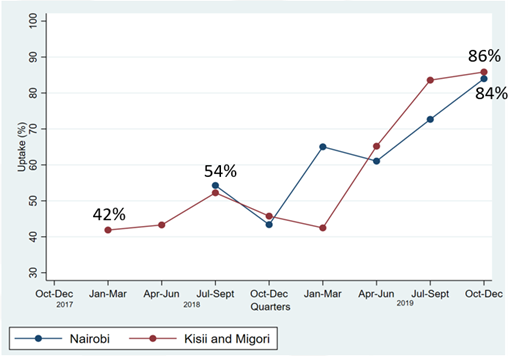
DSD uptake from January 2018 to December 2019 by program
DSD implies that clients should have a range of options when arranging their care. Sometimes the best option is fewer visits; other times the best option is more frequent visits—the best option depends on the client’s unique needs and preferences and their consultations with their healthcare providers. In the differentiated care model in Kenya, stable clients were given multi-month prescriptions and were allowed fewer clinic visits. Allowing fewer clinic visits, in this case, benefitted both clients and the health system because it enabled them to save time and money associated with frequent travel costs.
Above all, Ciheb’s findings support that both models—DSD and conventional care—benefit clients. Offering quality choice of service delivery models is critical to deliver people-centered care.
Contact
Center for International Health, Education, and Biosecurity
Institute of Human Virology
Tyler New
Scientific Writer
tnew@ihv.umaryland.edu
Related stories
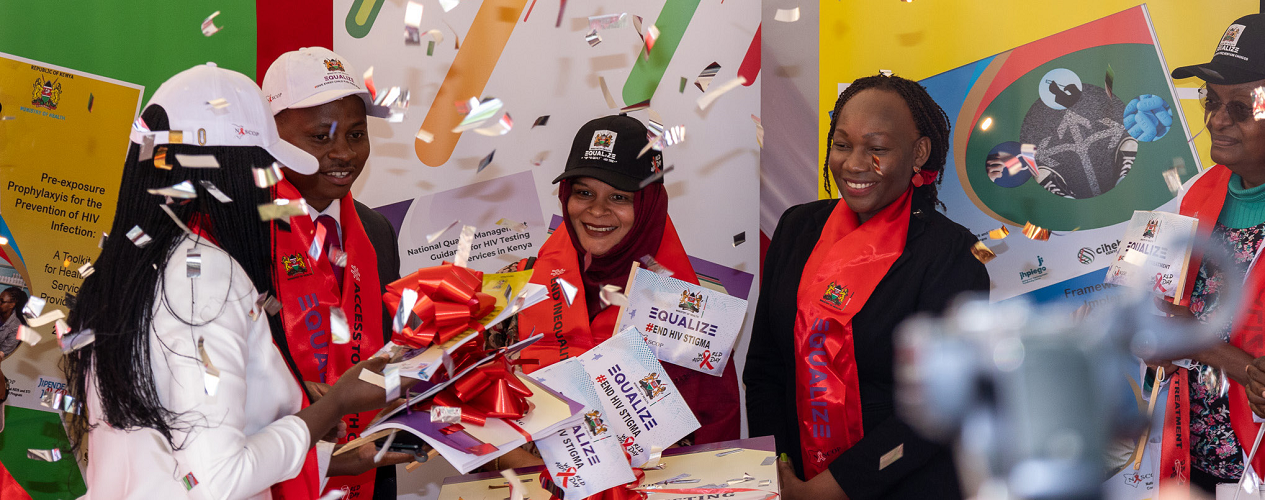
Friday, December 09, 2022
Ciheb-Kenya Joins the Globe in Commemorating the World AIDS Day 2022
Speaking during a pre-World AIDS day event in Nairobi, the Head of the National AIDS and STI Control Program (NASCOP), Dr. Rose Wafula, reiterated that the Ministry of Health, through NASCOP, commits to exploring and connecting the global and national efforts that focus on impact and progress towards the 95-95-95 targets to end the AIDS epidemic by 2030.
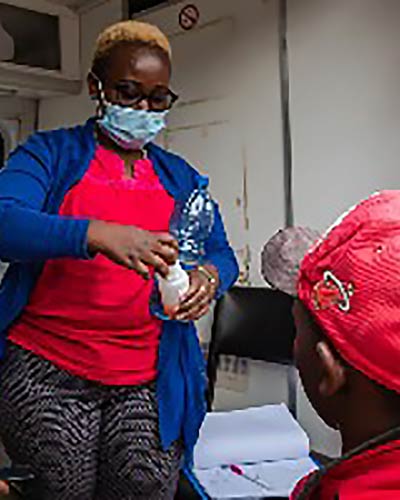
Monday, October 03, 2022
Medically Assisted Therapy Clinic in Kenya Empowers Women
In Nairobi, Ciheb’s PACT Endeleza program, with the assistance of the University of Maryland, Baltimore, and Nairobi City County, established medically assisted therapy (MAT) clinics to reduce the spread of HIV among people who inject drugs (PWID) and provide opioid substitution therapy (OST). These clinics in Mathari and Ngara were established with funding from the President’s Emergency Plan for AIDS relief through the U.S. Centers for Disease Control and Prevention.
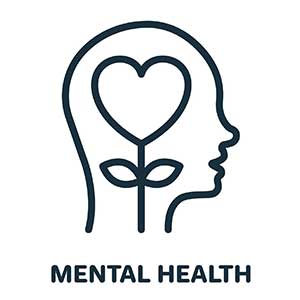
Tuesday, September 20, 2022
Caring for the Caregivers: Mental Health and Healthcare Workers in Kenya
Ciheb Kenya's CONNECT program held a two-day mental health workshop in Nairobi, Kenya. At the workshop, which was tailored for health management teams, facilitators expounded on the importance of good mental hygiene for healthcare workers.
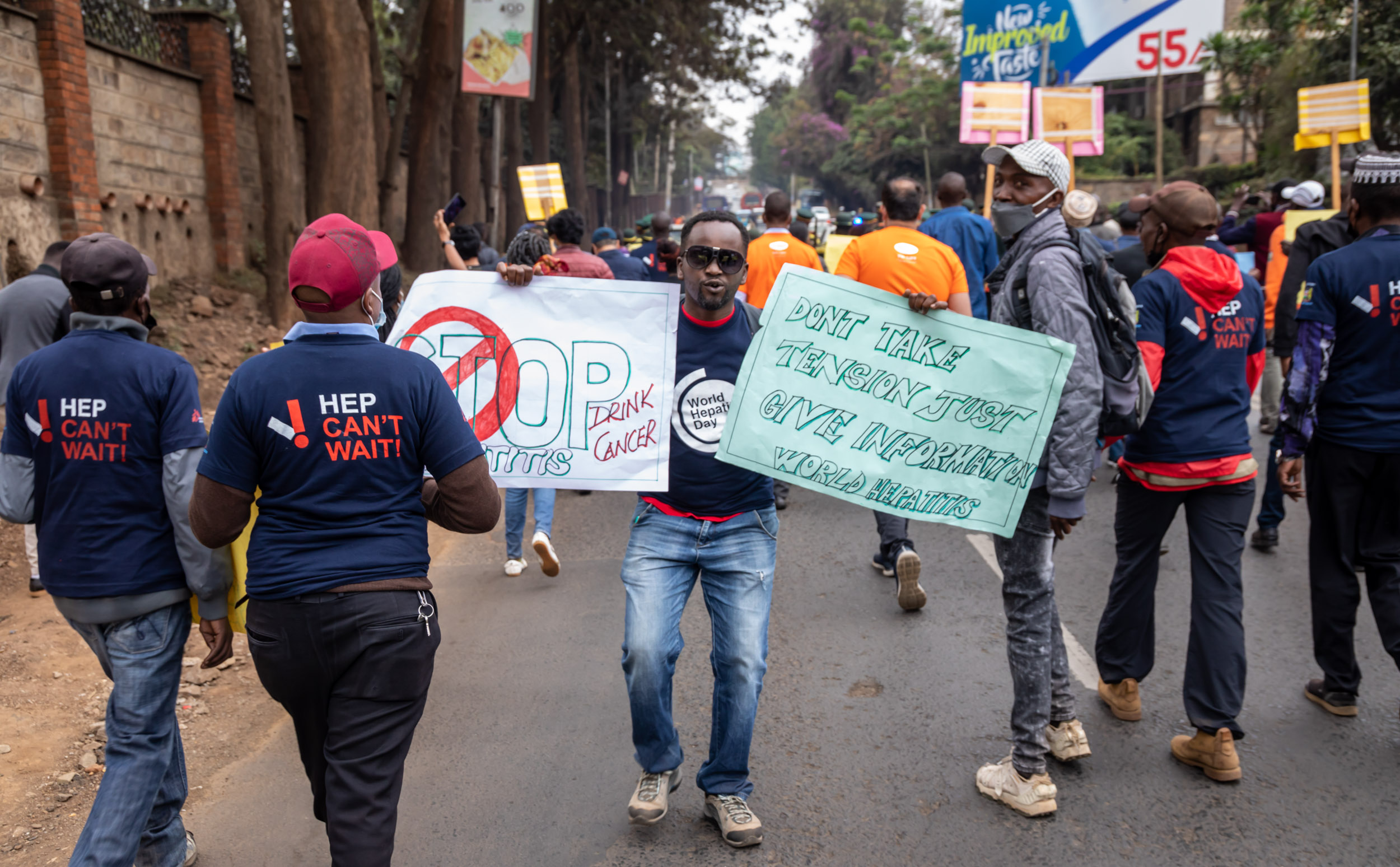
Monday, August 29, 2022
Kenya Celebrates World Hepatitis Day
Hepatitis A, B, and C are the most common of the viral hepatitis in Africa, with the African region accounting for 26% of the global burden for hepatitis B and Cin 2020.
Friday, April 29, 2022
CONNECT Program Targets Cervical Cancer
Women living with HIV are at a much higher risk of contracting cervical cancer, which progresses much faster in HIV-positive people due to their compromised immune status.
Tuesday, March 08, 2022
Lagos State NAIIS Technical Report Handover
Upon completion of the NAIIS survey, a comprehensive National Technical Report on NAIIS was presented to the Government of Nigeria in September 2020, and recently in February 2022, the Lagos state NAIIS Technical Report was handed over to the Lagos State government and to CDC Nigeria.
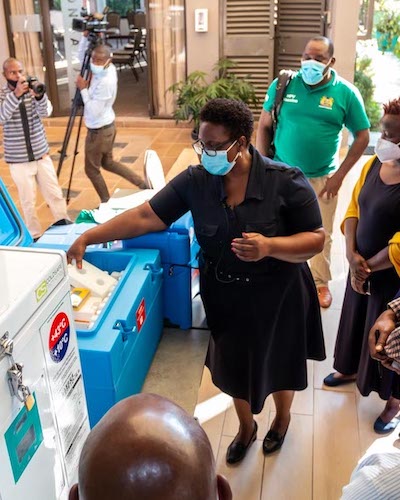
Wednesday, December 08, 2021
Supporting the Rollout of the COVID-19 Vaccine in Kenya
To combat the spread of COVID-19 in Kenya, Ciheb’s local partner, Ciheb-Kenya, received a five-year CDC-funded grant to support national and county activities towards rolling out COVID-19 vaccination. The Technical Assistance to Ready and Accelerate Capacity of public health programs in Kenya (TRACK) program is focused on supporting the development of national policies and training material on COVID-19 vaccination and teaching national trainers to cascade this training to counties.

Friday, October 29, 2021
PrEP used in the fight to end HIV in Kenya
In 2017, the Government of Kenya adopted a new policy called “A Framework for Pre-exposure Prophylaxis of IV in Kenya.” This framework directed the roll out of pre-exposure prophylaxis (PrEP) in Kenya, addressing the key focus areas of: availability, acceptability, accessibility of PrEP, and the holistic integration into the national HIV combination prevention strategy. To align with the government, Ciheb in Kenya’s PACT Endeleza program, which recently ended, also started offering PrEP that same year.
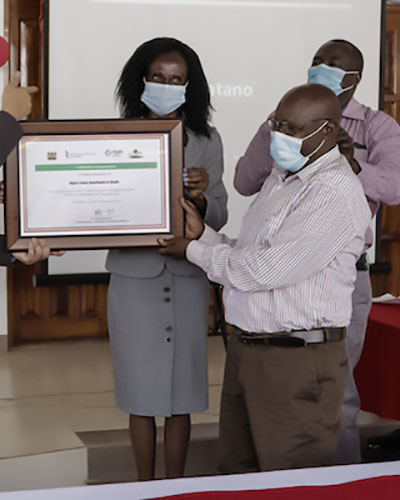
Wednesday, October 27, 2021
Kenya Country Programs Complete Five Years of Impact in HIV Services
September marked the close of Ciheb in Kenya’s two Partnership for Advanced Care and Treatment (PACT) programs, PACT Timiza and PACT Endeleza. Ciheb held closeout events in the three counties that it worked in – Kisii, Migori, and Nairobi City – to commemorate the two programs' accomplishments.
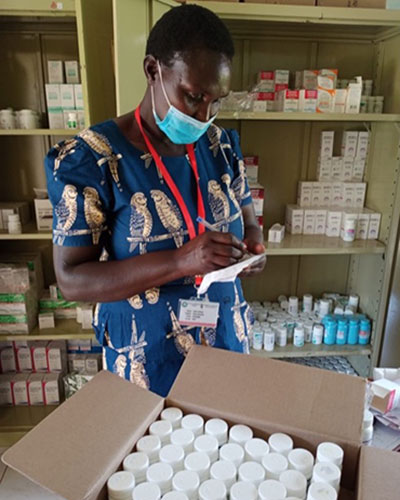
Tuesday, October 12, 2021
Differentiated Service Delivery Improves HIV Care in Western Kenya
HIV care and treatment involves complex needs and a unique set of circumstances for each client, and the conventional one-size-fits-all approach to treatment does not best serve people living with HIV (PLHIV). The client-centered approach known as differentiated service delivery (DSD) provides creative solutions to tailor clinical services to meet the needs of each client, an approach that better serves clients and the Kenyan health system.
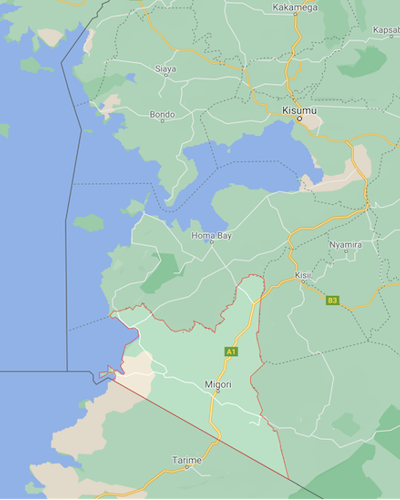
Monday, September 06, 2021
Public Health Impact through Research in HIV and TB in Western Kenya
Kenya has made remarkable strides towards reaching the UNAIDS 95-95-95 HIV targets for epidemic control, and HIV and tuberculosis (TB) services now reach a significant proportion of the Kenyan population.
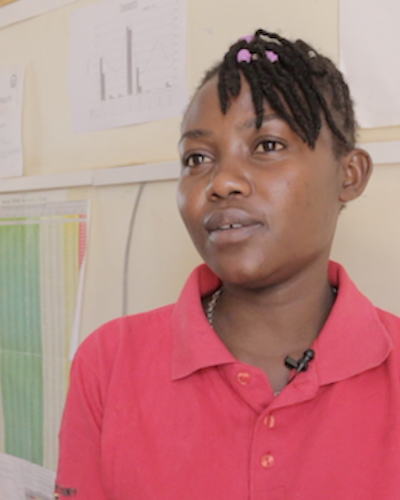
Friday, September 03, 2021
Operation Triple Zero Supports Adolescents in Overcoming HIV
HIV is a serious risk among adolescents in Kenya, and Ciheb has been helping address rising infection rates through Operation Triple Zero (OTZ). OTZ uses a contextual “asset-based approach,” whereby adolescents are considered as resources with potential answers to their challenges and are empowered to take responsibility and action for their health.
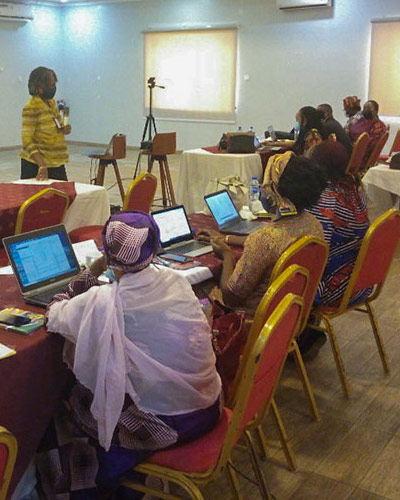
Wednesday, September 01, 2021
Data Demand and Information Use through STATA Training in Nigeria
Ciheb Nigeria, in partnership with the Federal Ministry of Health, recently facilitated a training to promote a culture of data demand among stakeholders to encourage the use of data on the National Data Repository (NDR) to track program outcomes and impact. The training also aimed to build the capacity of the stakeholders to maximize the use of data on the NDR for research.
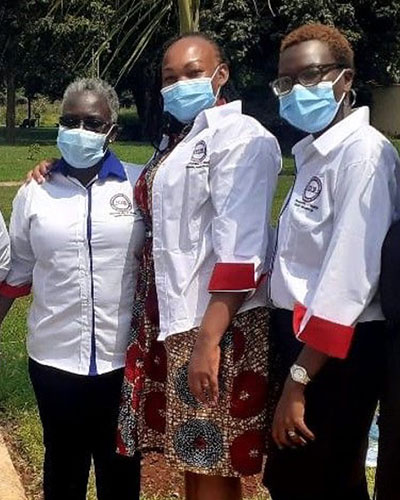
Monday, August 16, 2021
In Kenya, Ciheb Efforts Recognized in Nairobi County CQI Awards
During the summer, the Nairobi Metropolitan Services (NMS) held its annual Health Service Delivery Awards to recognize best-performing health facilities in Nairobi County. Facilities supported by PACT Endeleza won awards in all categories they participated in. NMS evaluated facilities based on their performance in continuous quality improvement metrics.

Monday, May 24, 2021
Ciheb-Kenya on the Front Lines of the COVID-19 Vaccine Rollout
Ciheb-Kenya, our local Kenyan partner, has been working with the U.S. Centers for Disease Control and Prevention, the Kenya Ministry of Health, and the National Vaccines and Immunization Programme (NVIP) to support COVID-19 vaccine preparedness through the ongoing Technical Assistance to Ready and Accelerate Capacities of Public Health Programs in Kenya (TRACK) project. Kenya received its first shipment of vaccines several weeks ago and has been moving ahead quickly. As of April 21, a total of 721,509 persons have been vaccinated against COVID-19 countrywide.

